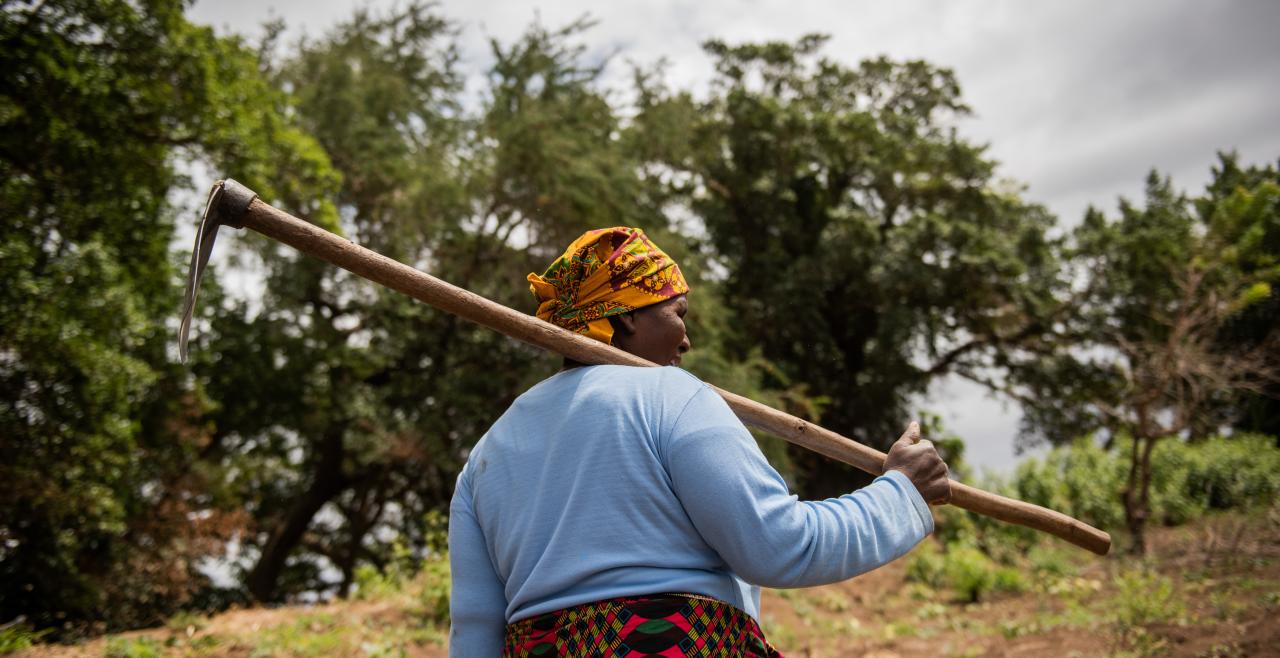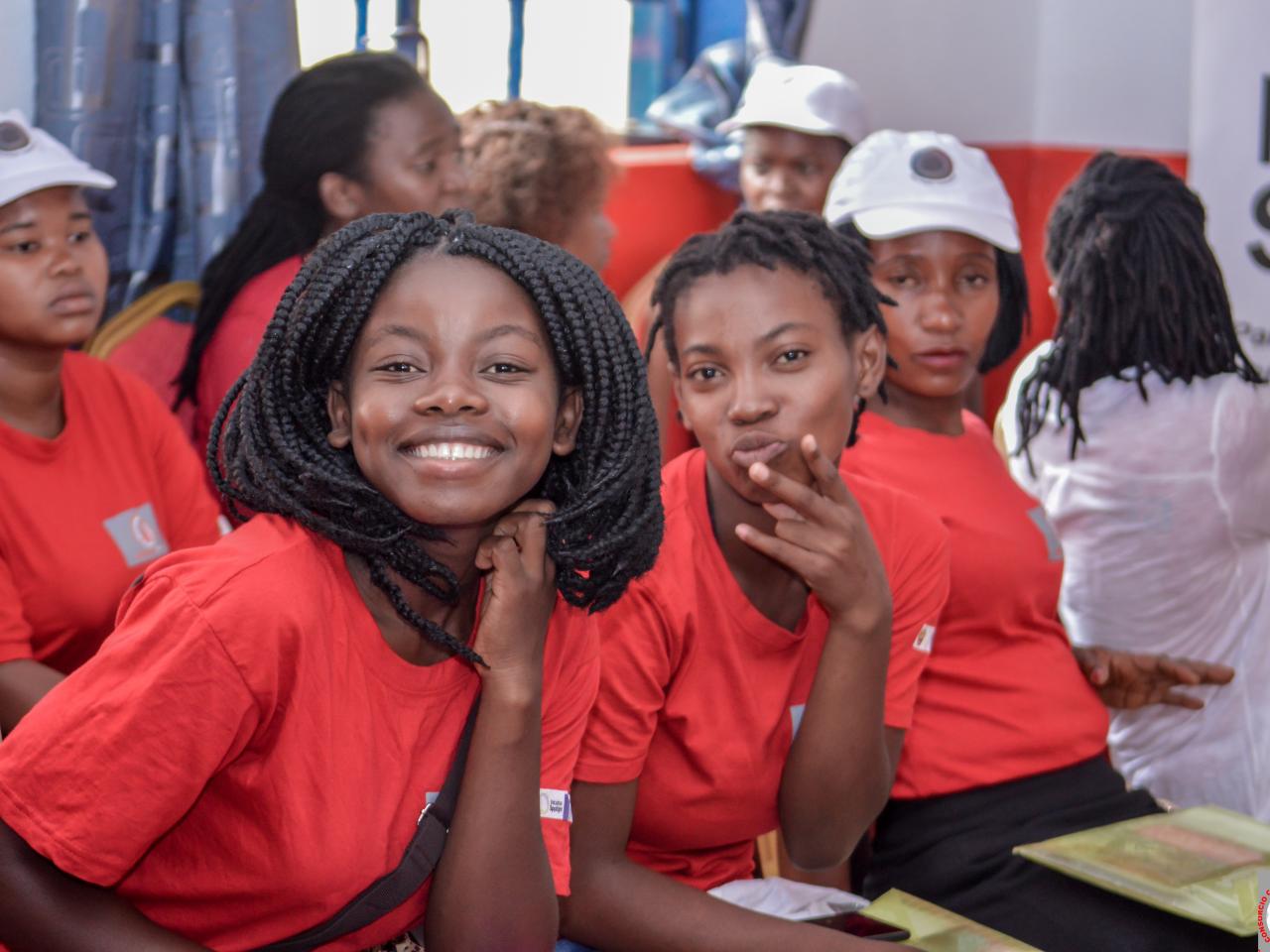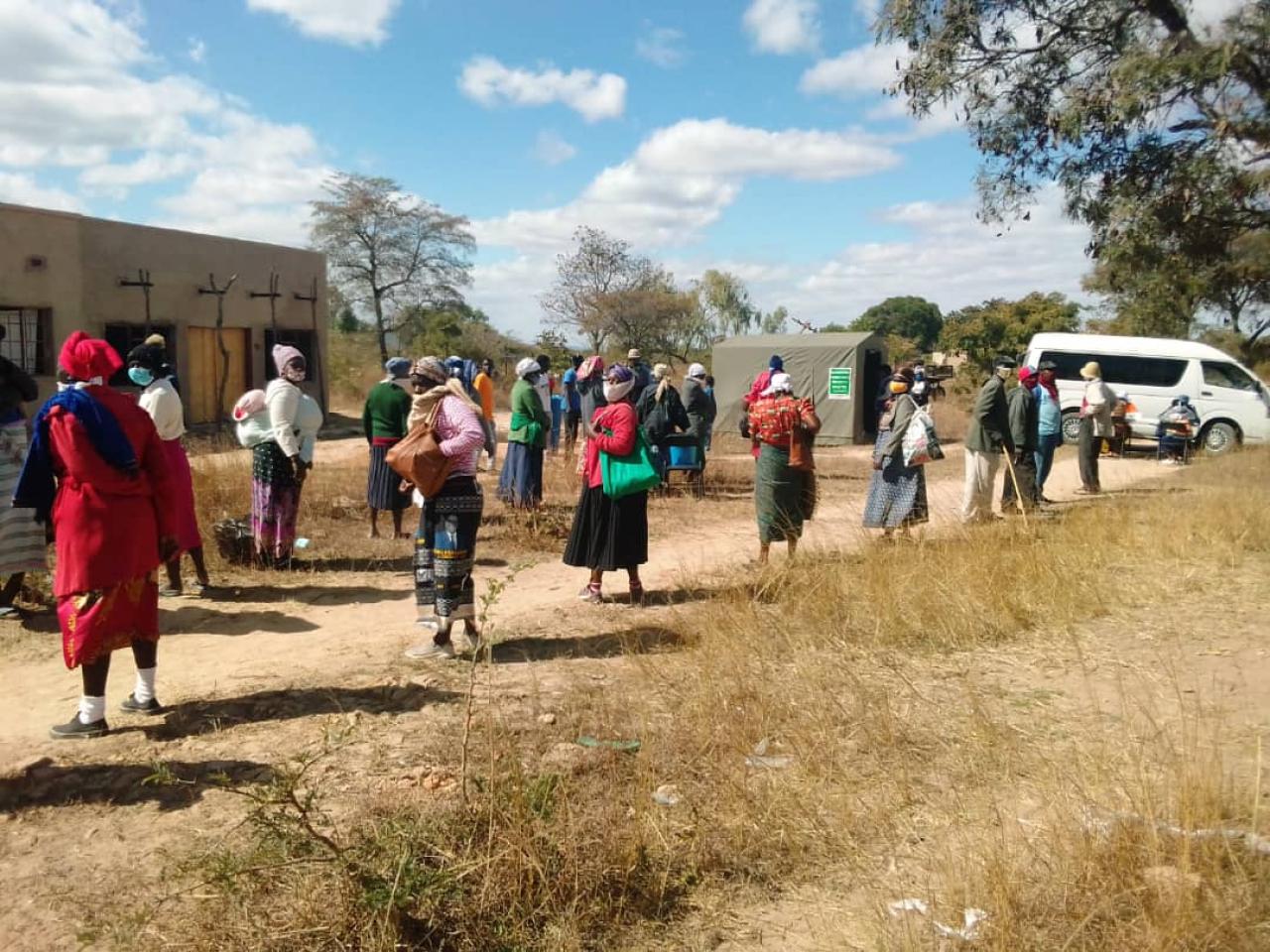'I support my six children on my own': In Mozambique, a rural woman shares her story

CHONGOENE, Mozambique – Alzira Mahanjane, 34, endured a decade of domestic violence. With support from AREPACHO, a Spotlight Initiative-supported organization, she learned about gender-based violence and became a farmer and activist in her community. Today she is proud to pay for her six children’s education with the proceeds of her work.
In the lead up to the International Day of Rural Women on 15 October, Ms. Mahanjane shares her story.
“I was married for 10 years. My husband and I built a house and had six children together, but our marriage was not a happy one. We argued a lot and he beat me several times.
One day, my husband came home and told me we were going to see my family. He did not explain why. When we arrived, my whole family was waiting for me. I didn’t understand what was happening.
"My husband and I built a house and had six children together, but our marriage was not a happy one. We argued a lot and he beat me several times" - lzira Mahanjane, 34
Then he told my family that he was “giving me back” because I was “possessed by demons.” My brother got so angry that he got into a fight with him. My husband left, and I stayed behind.
After two weeks without seeing my children, I went back home, only to be kicked out again. I insisted that I was not going to leave – it was my house too!
He beat me several times and cut my finger. I went to the hospital, where I was advised to report the case at the police station, but I didn’t want to. I preferred to seek counselling from local elders. They advised me to stay with my husband and convinced him to stop sending me away.
However, after some time, he left me for another woman, and I was forced to work odd jobs to feed our children.
A few years earlier, I had joined AREPACHO [a grassroots organization that teaches farming and supports vulnerable people].
I learned how to farm several crops and met a group of people who I consider my family to this day.
Apart from farming, we used to visit orphans, vulnerable children and people living with HIV. We would wash their clothes and cook them food.
My husband didn’t like me participating in this organization, but I always kept in touch with my fellow activists.
Today, AREPACHO works mainly with youth on family planning. But with the farming skills I learned, I now work as a farmer and support all my six children on my own. It hasn’t been easy, but they are all in school and my eldest, who is now 16, is studying to become an electrician. During the COVID-19 school closures, they help me farm. We are harvesting maize soon.”
"With the farming skills I learned, I now work as a farmer and support all my six children on my own" - Ms. Mahanjane
Despite her busy life, Ms. Mahanjane has big hopes for her future: “I want to study and one day, I would like to train others to be the change in their communities to help women overcome violence”.
Ms. Mahanjane is one of over nine million rural women in Mozambique, according to the 2017 Population Census. They represent more than 34 per cent of Mozambique’s population and most of them work in agriculture - the main source of income for more than 70 per cent of Mozambicans.
According to the latest Demographic and Health Survey in Mozambique (DHS 2011), more than 37 per cent of Mozambican women suffer physical and sexual violence during their lives. Underreporting remains a huge issue in Mozambique, as around the world.
Mozambican rural women face multiple barriers in reporting violence, from low literacy levels to lack of knowledge about where to find support, difficulty in access to justice, reliance on informal conflict-solving mechanisms, or simply because they believe violence is normal.
Grassroots organizations like AREPACHO are instrumental in supporting marginalized, rural women and girls experiencing violence. They help survivors understand violence and the many forms it can take, and inform them about where to report and find support. As a community-based organization based in Chongoene, Gaza province, AREPACHO empowers women farmers to improve their productivity and access to markets. Members contribute to reducing poverty in their communities by raising awareness on HIV/AIDS, family planning, food security, gender-based violence and by supporting orphans and vulnerable children. AREPACHO is a partner of Gender Links, one of the many organizations that works with the Spotlight Initiative in Mozambique to advance women’s rights and end gender-based violence.
The Spotlight Initiative is a global partnership between the European Union, the United Nations and host governments to end violence against women and girls. In Mozambique, the initiative is led by the Ministry of Gender, Children and Social Action and works with grassroots organizations such as AREPACHO to support marginalized women and girls experiencing violence, in both urban and rural areas. In Mozambique, the Spotlight Initiative is implemented over a four-year period (2019-2022) with a USD 40M commitment by the EU, focusing on the priority areas of ending sexual and gender-based violence, eliminating early marriage and promoting women and girls’ sexual and reproductive rights.
By Leonor Costa Neves with reporting from Laura Lambo.


